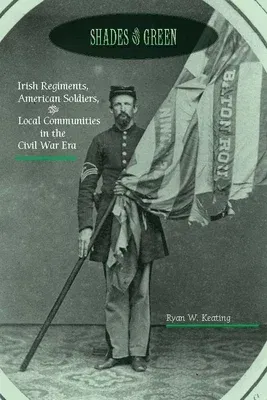Drawing on records of about 5,500 soldiers and veterans, Shades of Green
traces the organization of Irish regiments from the perspective of local
communities in Connecticut, Illinois, and Wisconsin and the
relationships between soldiers and the home front. Research on the
impact of the Civil War on Irish Americans has traditionally fallen into
one of two tracks, arguing that the Civil War either further alienated
Irish immigrants from American society or that military service in
defense of the Union offered these men a means of assimilation. In this
study of Irish American service, Ryan W. Keating argues that neither
paradigm really holds, because many Irish Americans during this time
already considered themselves to be assimilated members of American
society.
This comprehensive study argues that the local community was often more
important to ethnic soldiers than the imagined ethnic community,
especially in terms of political, social, and economic relationships. An
analysis of the Civil War era from this perspective provides a much
clearer understanding of immigrant place and identity during the
nineteenth century.
With a focus on three regiments not traditionally studied, the author
provides a fine-grained analysis revealing that ethnic communities, like
other types of communities, are not monolithic on a national scale.
Examining lesser-studied communities, rather than the usual those of New
York City and Boston, Keating brings the local back into the story of
Irish American participation in the Civil War, thus adding something new
and valuable to the study of the immigrant experience in America's
bloodiest conflict.
Throughout this rich and groundbreaking study, Keating supports his
argument through advanced quantitative analysis of military-service
records and an exhaustive review of a massive wealth of raw data; his
use of quantitative methods on a large dataset is an unusual and
exciting development in Civil War studies. Shades of Green is sure to
"shake up" several fields of study that rely on ethnicity as a useful
category for analysis; its impressive research provides a significant
contribution to scholarship.

